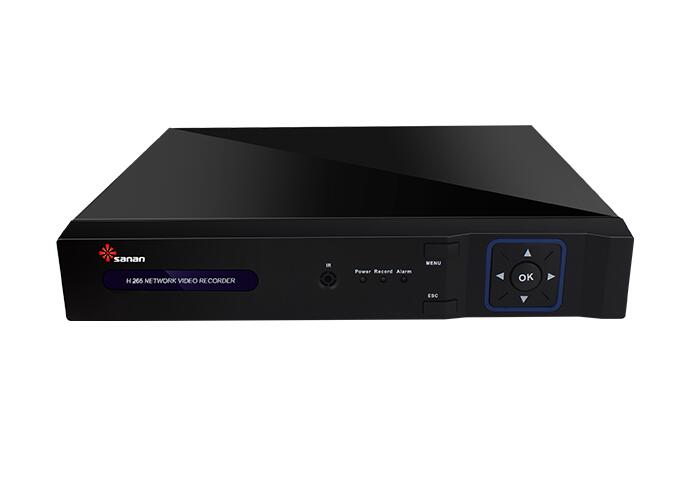Release date: 2014-09-26 In modern life, many people are already inseparable from mobile phones. Because mobile phones have the basic functions of making calls and texting, all kinds of APPs have given new meaning to mobile phones. It is our wallet, digital camera, books, maps, and even the most important tools for obtaining outside information. With the rapid development of technology, mobile phones have become more versatile, and these ever-changing functions have enriched people's lives, and there is a new development direction - mobile medical. “I don’t feel well, I’m asking for a mobile phone,†which is no longer a fantasy in the mobile Internet era. Mobile medical APP has mushroomed and developed rapidly. At present, it has reached thousands of models. Mobile medical APP can not only meet the needs of online consultation, daily health care, chronic disease conditioning, etc., but also developed a variety of disease detection functions, including mental illness and cancer. , heart disease, etc. In addition, scientists have developed smartphone-based accessories, adapters, etc., which can be used to quickly and easily detect diseases such as malaria and eye diseases. Let's take a look at the eight health detection features of smartphones. Mental illness test Melvin McInnis, a psychiatrist at the University of Michigan, designed a new smartphone app called PRIORI that monitors the user's voice and analyzes their emotional ups and downs to predict if they have Suffering from mental illness such as bipolar disorder. When you download and install PRIORI on your smartphone, it will start recording the sound of your call. Of course, in order to avoid infringement of other privacy, PRIORI is only used to monitor the patient's voice and does not involve conversational content. Thereafter, PRIORI will encrypt the recording and send it to the University of Michigan lab for analysis. Although the app is still in its preliminary testing phase, the researchers say it predicts a 65% accuracy in future mental state changes. 2. Cancer detection Researchers at the University of Houston in the United States have developed a medical app called DermoScan, which is designed to detect melanoma skin cancer with an accuracy rate of 85%, which is more professional and faster than doctors' tests. As soon as you take a picture of a suspected cancer spot on your skin, DermoScan will automatically analyze which stage of the melanoma skin cancer is being measured. Although the operation process is very simple, the accuracy is actually higher than the doctor's judgment with the naked eye. The app is already available for download in the App Store, but it also comes with a magnifying glass for $500. The accuracy of DermoScan is very practical for developing countries with relatively poor medical care. As long as a mobile phone and a kit are used together, it will benefit a large number of patients waiting for treatment. 3. Heart disease detection Last month, the FDA approved the first device to detect severe heart disease by moving ECG (electrocardiogram). The device for detecting AF in atrial fibrillation (a warning sign of stroke and heart failure) was developed by AliveCor, and the company plans to integrate the new functionality into the AliveCor smartphone plug-in and app to monitor the heart. AliveCor's device is a wireless single-lead mobile electrocardiograph that can record heart rate on the back of a smartphone. It can store the read data on the iPhone and upload the data to a cloud-based, patient. And the doctor can access the server. The device can diagnose after 30 seconds of reading data and is compatible with iPhone, iPad and Android devices. 4. Suicide detection (under development) As more and more celebrities die of suicide due to depression, depression has once again received public attention. Recently, Beijing launched the first self-service project for depression and suicide prevention, which is planned to be completed within two to three years. The project will be presented in the form of a smart phone app that provides the public with self-services such as health science, depression assessment, online self-help treatment, online consultation, online appointment registration, psychological crisis response, depression treatment and rehabilitation management. People can obtain authoritative assessments of psychology, emotions, cognition, ability, and personality through mobile terminals. 5. Eye disease detection Researchers at Stanford University School of Medicine have developed two low-cost adapters that can capture high-resolution images of the patient's eyes using a smartphone. This technology allows the patient to conveniently take pictures of the eye and safely share it with other health practitioners or in the patient's electronic medical record. Developers say the technology is expected to improve eye care services and provide remote advice for patient self-care. In addition, this technology can not only take pictures of the front of the eye, but also take pictures of the back, that is, take pictures of the retina. The technology development team said that the two adapters were manufactured at less than $90, but were initially sold only to researchers. In the future, adapter manufacturing costs will further decline. 6. Malaria detection Athelas, founded by 17-year-old Tanay Tandon, has developed a smartphone blood test that can diagnose malaria. The device does not require expertise for malaria testing in just a few seconds, and there is little cost, and all work can be done on a smartphone. In addition, scientists at Oregon State University have designed a new type of chemical test to determine whether a drug can actually be used to treat malaria. Researchers at the university are further developing related mobile apps to accurately determine the level of drug presence. 7. Diabetes housekeeper The diabetes management platform based on mobile APP and cloud big data collection developed by American personal health management mobile medical company WellDoc has successfully passed the FDA review, which is the first FDA-approved mobile phone application that can help doctors optimize prescriptions. WellDoc's flagship product is a Diabetes Butler System called Diabetes Manager, which costs around $100 a month and is close to the price of diabetes drugs. Patients can easily store information on diet, blood glucose levels, and medication options through mobile health applications, and get personalized feedback and alerts through the cloud. WellDoc's next step is to set up a nationwide sales network to introduce the diabetes management system directly to the doctor and a team of trainers to assist the patient in installing the system on their smartphone or laptop. 8. Genetic testing (under development) Illumina, the leading company in gene sequencing, plans to develop a chip that can be plugged directly into a smartphone, bringing personalized genetic medicine. A spokesperson for Illumina said that smartphones will become "molecular stethoscopes" in the future, and people will no longer need to go through family physicians to be tested at home or in the clinic. The program is expected to be implemented in the next 5-7 years. Although genomics is still in its early stages of development, the technology has saved many costs and saved lives in cancer treatment and pregnancy care. The development of portable genetic testing technology, combined with genetic testing and smart phones that people can't leave, will surely occupy a vast market in the future. Fun delivery After reading so many health-related applications, Xiaobian is a fun application for smartphones - mobile phone microscopes. At a ceremony held at the Sydney City Hall on the evening of September 10th, researchers at the Garvan School of Medical Research and the Australian National University won the Eureka Award for their technological invention of the "Portable Cell Microscope". Just need a lentil-sized lens to upgrade your smartphone to a super-high-resolution microscope for high-level medical image viewing at a cost of less than a penny (about 5 cents). Lenses are made by allowing the polymer to form a natural form of liquid water droplets under the influence of gravity. When mounted on a smartphone or tablet, with a flash, these lenses can be magnified 160 times and see 4 microns. Xiaobian Message Nowadays, mobile phones are no longer simple mobile phones. It seems that as long as people are willing to develop, it can replace anything. This trend is difficult to comment on whether it is good or bad, but if you can truly achieve disease detection anytime, anywhere, and the credibility of the test results to a certain extent, this is undoubtedly a good thing to manage our health. Source: Bio-Exploration
64 channel NVR Another name including:
Hikvision 64 Channel Nvr,Dahua 64 Channel Nvr,Nvr Hikvision 64 Channel,Hikvision 64 Channel Nvr Price
64CH Nvr,Dahua 64 Channel Nvr,Nvr Hikvision 64 Channel,64CH network video recorder SHENZHEN SANAN TECHNOLOGY CO.,LTD , https://www.sanan-cctv.com


Eight new applications in the field of smart phone health
In modern life, many people are already inseparable from mobile phones. Because mobile phones have the basic functions of making calls and texting, all kinds of APPs have given new meaning to mobile phones. It is our wallet, digital camera, books, maps, and even the most important tools for obtaining outside information.
64CH IPC access, Access bandwidth 256M, UP to 6MP IP camera access;
* Max. 16CH Synchronous Playback;
* 16 RJ-45 10/100/1000 Mbps self-adaptive Ethernet interfaces;
* Support 8pcs* SATA HDD port and 1pc eSATA HDD port;
* Support for third-party cloud storage, support for P2P, support for mobile messaging push.
